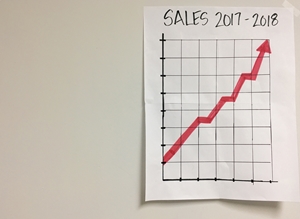
Whether you're seeking a career change or are newly graduated with your diploma in hand, the journey to owning and operating a small business is just that: a journey. By forging this path, you are daring to chart a different, happier, more successful life for yourself and for your current or future family. Yet as with any adventure, you should be prepared for a few bumps along the way, crossroads, steep hills and deep valleys.
But before you begin your trek, it's important to take a few things into consideration so that the journey to your destination is as smooth as possible. Here are a few of those items to check off your small business prep to-do list:
1. Review your financials
As the old saying goes, it takes money to make money; as an aspiring small-business owner, you'll need a considerable amount of it to get things going for considerations such as a workspace (if you don't own one already), hiring personnel (again, if applicable), equipment, insurance considerations and inventory.
If you don't have the necessary savings, you may need to obtain a loan from a financial institution so you can get the proper amount of capital. In terms of how much you'll need, your lender or some other advisor may be able to assist you in this regard. The more details you can provide to them about your desired goals and intentions, the better, more accurate guidance they'll be able to give.
2. Decide on an appropriate business structure
In addition to the fact that businesses come in all shapes and sizes, they also come in various structures in terms of a legal perspective. There are several types but the most common four are sole trader, partnership, limited liability company and a trust.
If you're looking for the least restrictions possible so you can start up more quickly, sole trader may be your best bet. However, if you're looking for more security and financial protections, becoming a limited company may be preferable, despite there being more paperwork and red tape.
At WMC Accounting, we offer a network of support through our business specialists, who will guide you through the small-business startup process. We'll go over your goals and what you have in mind and then provide you with the direction you need to turn your aspirations into reality. For example, if you want to be a sole trader, you actually still can hire employees. However, there are some housekeeping issues that you'll need to address to ensure you're abiding by the rules and regulations of business and tax laws in Australia. We can assist you with all this when you're ready.
3. Honestly assess your capabilities
It's safe to assume that by beginning a small business, you intend to sell a product or service. In a free market system like Australia, the economy is run on supply and demand. If consumers can't find or don't like something that one business is selling, you can guarantee they'll go someplace else until they find whatever it is they're looking for. And with more than 2.3 million businesses in Australia — nearly 98% of which are small, according to the most recent statistics available from the Australian Government — you can just about guarantee that they'll find it eventually.
Given this, honestly evaluate whatever it is that you're trying to sell to the public and determine whether you have the market and the ability to sell a product, item or service that people actively want. This may require some reflection and obtaining feedback from friends, family members, co-workers, confidantes and acquaintances. Whatever advice you get, use it wisely and let it inspire you to build something better so demand for it will naturally rise. The key is to ensure that you use feedback constructively, not destructively so it deters you from achieving your goal or even trying.
4. Get a sense of your competition
From construction, to manufacturing to wholesale trade or IT services, the industries in Australia run the gamut; there are literally hundreds, if not thousands to select from if you're a consumer.
Whatever it is that you plan on selling as a specialty, take some time to examine the companies that you'll presumably be competing with for customers' loyalty. You may want to ask yourself the following questions to get a better read on what they're doing well, where there may be room for improvement and what you may bring to the table by entering the industry:
- What is the price range for products or services?
- Can you sell for less?
- Is there anything they do that you could do better?
- What, if any, influences does seasonality have on sales
The more inquisitive you are in your research, the better off you're likely to be in mapping out a smart game plan.
From strategic planning to financial compliance and so much more, WMC Accounting is fully equipped to serve you as you enter the exciting world of small business management. Contact us today for business services done right.



